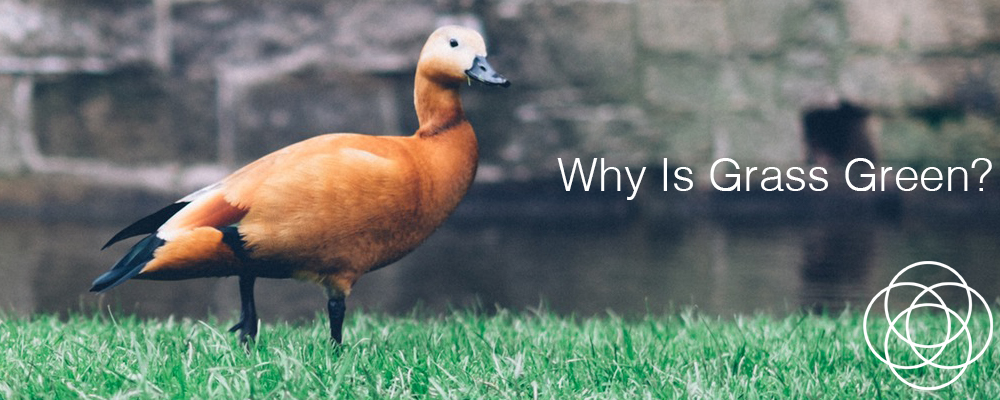“Why is grass green?” I was three or four years old, and this was probably the hundredth question I had asked my mum that day. I was a curious child in every sense, as curious as a cat with nine lives to spare, and a curious specimen of childhood, a child more interested in why than what.
“Oh, I don’t know why,” Mum replied, and I still remember her frustration, the toss of her head, “because it’s not blue.”
I don’t know why I remember that particular incident, but I wonder if it was the first time I realised that parents don’t know everything.
If she’d been Buddhist, she might have answered, “It is so”, gently teaching acceptance of the way things are. But she wasn’t, and her frustrated answer led to my inevitable, “Why isn’t it blue?”
Years later, I rushed home from a school science class to excitedly share that grass was green because it contained a green substance called chlorophyll. Strangely, Mum didn’t share my excitement. I went to bed that night wondering why chlorophyll was green.
A remarkable thing then happened. I learned in school physics that when we look at grass, a selection of light rays reflecting from the blades of grass enter our eyes and trigger nerve impulses that arrive at our brains and actually deliver an upside down image of grass – kind of like a sky of grass and a field of sky. This happens because the lens inside the eye acts like a camera lens; it inverts the image. Our brains consult our bank of experience and decide that it makes more sense to see a field of grass and an overhead sky. So we do. It turns out that the brain interprets what we see (hear, feel, touch, taste) to fit our expectation. The shift that happened for me that day was the realisation that the world we each perceive is not the world as it is, but the world of our individual illusion.
Why is grass green? A colour blind person may tell you it is blue, or red, or grey, or any other word that meaningfully describes their experience of green.
So, grass is green because it isn’t blue; because it is so; because it contains chlorophyll; because chlorophyll absorbs certain rays from the sun and reflects the rest which, bundled together, scientifically speaking make green; because ‘green’ is a word someone chose many generations ago to mean the colour of grass; because I am English (not French, in which case it would be vert); because my brain chooses to have an experience it translates as green; because I am not colour blind.
There are so many reasons why grass is green: physical, scientific, subjective, semantic, geographic, experiential. Oh, and what colour is grass at night time, when there is no sun, no light? It’s black. And what colour is grass if you shine a red light on it? So our most basic question about grass – why is it green – is based on a false premise. Grass is just grass, and how green it is all depends on your life experiences and the way in which you view it.
What I love about interpreting dreams is that they help us to understand our individual perspectives of the world. The dreaming brain busies itself each night processing our recent waking life experiences and filing them away, usually according to what we already know. Interpretation reveals the make up of your individual mindset, your programming. You get to understand why you process your life experiences in the way you do, and gain insight into your foundation beliefs and whether these are really serving you well. You get to question those foundation beliefs, and perhaps change them, if you wish.
We see grass as green because our mothers told us it was green. So it is. Indisputably so. Because it’s not blue. Or is it?


